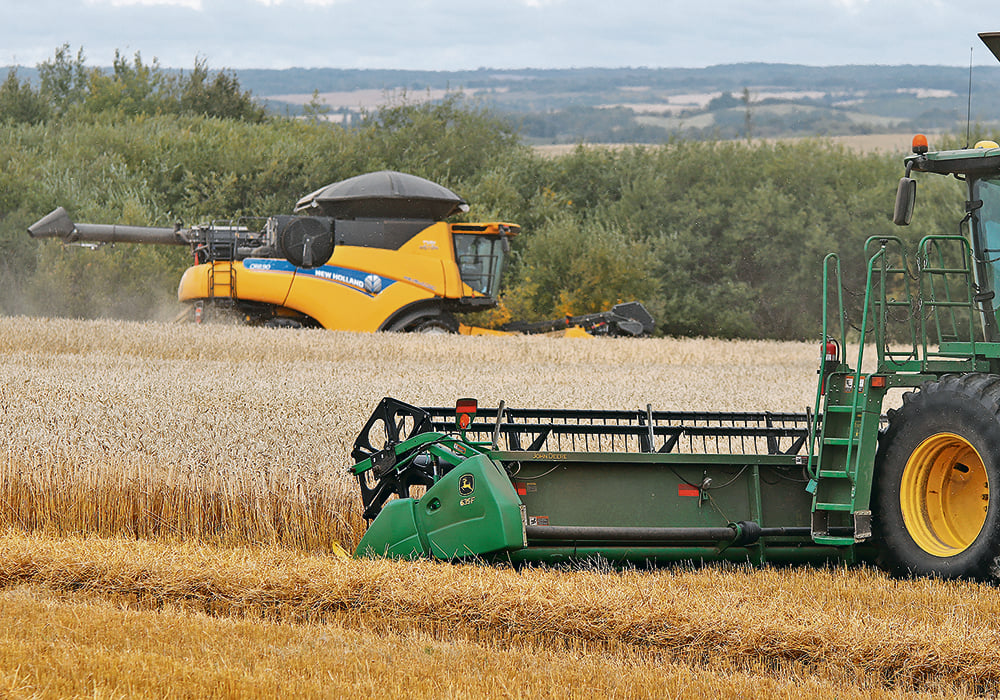Few political figures have shaken global markets like U.S. president-elect Donald Trump.
His recent threats to impose sweeping tariffs — 25 per cent on Canadian and Mexican agricultural products and 10 per cent on Chinese goods — sent shockwaves through currency markets, sinking the Canadian dollar by a cent within seconds.
These tariffs, framed as leverage to tighten borders and curb immigration and drug trafficking, signal a calculated shift in U.S. economic policy with potentially devastating consequences for Canada’s agri-food sector.
Read Also

Short rapeseed crop may put China in a bind
Industry thinks China’s rapeseed crop is way smaller than the official government estimate. The country’s canola imports will also be down, so there will be a lot of unmet demand.
In 2023, Canada exported more than $40 billion in agri-food products to the United States, accounting for nearly 60 per cent of its total agri-food exports. These goods include grain such as wheat and barley, livestock such as beef and pork, and iconic products such as maple syrup and whisky.
Canada’s role as a supplier of high-quality agricultural goods to its largest trading partner is critical to the sector’s survival.
A 25 per cent tariff on these exports would devastate the already-slim profit margins underpinning food production and trade. Even a five per cent tariff could destabilize supply chains, discourage U.S. importers and upend decades of economic integration. With Canadian producers more dependent on the U.S. market than at any time since the early 2000s, the stakes are higher than ever.
Trump is unlikely to enact policies that harm American consumers, and tariffs on Canadian imports would raise grocery prices in the U.S. It’s a political risk he is keen to avoid.
Instead, he is counting on Canada to yield, given its reliance on the U.S. market and strained diplomatic ties with other major economies such as China and India.
For Canada, this is a wake-up call. Ottawa must move beyond short-term fixes such as rebate cheques or GST holidays and address the structural vulnerabilities in its agri-food economy.
Trump is leveraging America’s economic dominance to gain concessions, and Canada must be prepared to adapt.
Adding to the pressure is Canada’s carbon tax, which has further weakened the competitiveness of its agri-food sector. A peer-reviewed study from Dalhousie University highlights how this policy has placed Canadian producers at a disadvantage compared to their U.S. counterparts.
With the U.S. likely to step away from the Paris Agreement, American producers face fewer regulatory costs, allowing them to compete more effectively.
Combined with a weaker Canadian dollar, this creates strong incentives for U.S. importers and retailers to favour domestic products over Canadian ones, further squeezing Canadian producers.
If Canada continues prioritizing retail politics over meaningful economic strategy, the fallout will be felt by every household at the grocery store.
Trump’s tariff threats are not mere theatrics — they expose the fragility of North American trade dynamics and demand a strategic response from Ottawa.
A cohesive plan to safeguard Canada’s agri-food sector is urgently needed. This means reducing barriers to innovation, revising policies such as the carbon tax that hinder competitiveness and expanding export markets to reduce dependence on the U.S. Strengthening diplomatic relationships with emerging markets, particularly in Asia, must also be a priority.
Trump’s approach may seem brash, but it reflects a deliberate strategy to assert U.S. dominance. Canada must rise to the challenge by rethinking its economic policies and securing its place as a leader in global agriculture.
Without bold action, the consequences will reverberate far beyond the farmgate, affecting every Canadian at the checkout line.
Sylvain Charlebois is a senior director of the Agri-Food Analytics Lab at Dalhousie University. This article first appeared on the Troy Media website.















